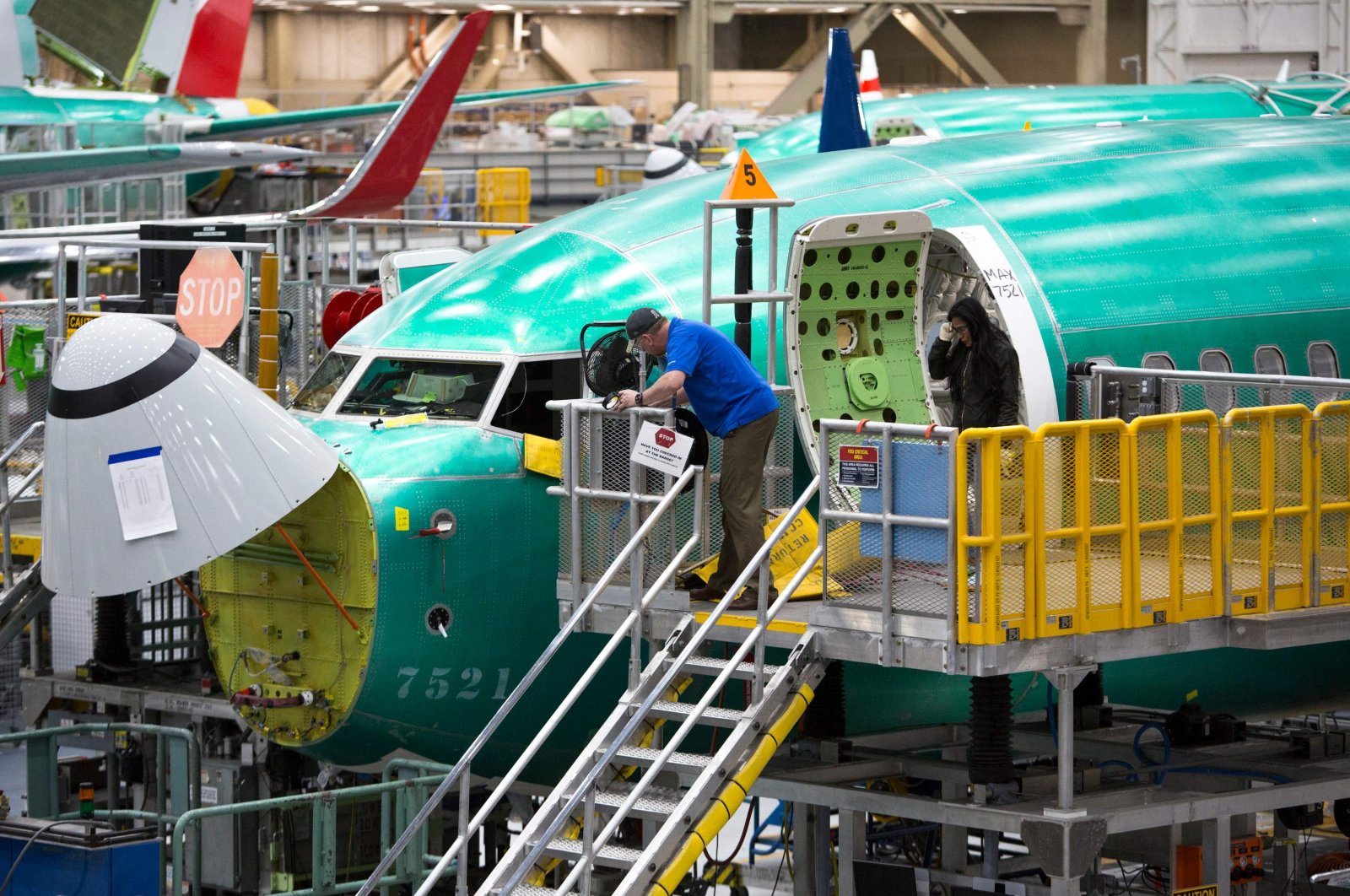Boeing: Battling Supply Chains and Inspection Scandals
Boeing faces significant challenges from supply chain delays affecting its 787 jets, coupled with internal issues of falsified inspection records. How is the aviation giant navigating these turbulent times?
Published July 22, 2024 - 00:07am

Image recovered from thestandard.com.hk
Boeing expects delayed suppliers to catch up on parts that have slowed production of its 787 jets to below a rate of five a month, as the US plane maker works to restore output of two key commercial programs by the year's end.
Boeing and its European rival Airbus are struggling to meet strong airline demand for jets as they wrestle with problems within their supply chains and factories. Such concerns are set to cast a shadow at the Farnborough Airshow from July 22 to 26, despite strong travel demand. Earlier this year, Boeing lowered 787 output to allow suppliers to catch up with us, a company executive told reporters during a June visit to its sprawling 777 widebody factory in Everett, Washington State. At this year's Farnborough Air Show, Airbus SE is chasing orders for its A330neo airliner, positioning the widebody model as an attractive alternative to more advanced jets because of its favorable economics and availability.
In another realm of challenges, Boeing praised an employee who reported falsified inspections and led an exhaustive investigation. The issue did not cause flight safety concerns but affected required inspections of aircraft still in production. Supply chain issues continue to impact the Boeing 787 production rate, which is set to reach five per month by the end of the year.
The head of Boeing's 787 Dreamliner program had spoken out about the individual who first reported that inspection documents were not being completed properly. Simple Flying first reported in April that the aircraft manufacturer notified the US regulator about the record falsification, which only affected aircraft still in production but resulted in an exhaustive investigation.
Earlier this year, Scott Stocker, Boeing's South Carolina site leader and General Manager of the 787 program, informed employees that several people had been violating company policies by not performing a required test but recording the work as having been completed. Boeing confirmed it had promptly informed the Federal Aviation Administration (FAA) and was taking swift and serious corrective action with multiple teammates.
The inspections being falsified were to confirm adequate bonding and grounding where the wings join the fuselage on certain 787 Dreamliner airplanes. Evaluations at the time found the issue did not cause any safety of flight concerns, but all Dreamliners in Boeing's possession had to be re-inspected. Speaking to journalists at Boeing's Everett production facility recently in advance of the Farnborough International Airshow 2024, Stocker praised the person who came forward to report the discrepancy: We had an employee that spoke up and alerted us to a process that didn't look quite right. We're very grateful that that happened so that we could catch it.
The program leader continued by confirming that Boeing has run an exhaustive investigation on the matter and is being fully transparent with the FAA and its customers the whole way through. When pressed for specifics, Stocker confirmed that the company had to go back in and address some of the work that was not done correctly but that the issue only affected aircraft still to be delivered: We have contained that within our production system, and we've done an exhaustive fleet analysis on that issue as well. So the investigation continues, but we've made really good progress on it.
The Federal Aviation Administration confirmed at the time it was investigating the issue but did not pose an immediate threat to the flying public's safety. When reached for comment today, a spokesperson for the regulator confirmed it was continuing to monitor the situation: FAA Administrator Mike Whitaker has made it clear that it cannot be business as usual with Boeing. The FAA will continue to hold Boeing accountable. Boeing has delivered a roadmap to change its safety culture.
In the broader view, while the internal issue did not cause any direct production delays due to containment within the production flow, it compounded ongoing supply chain delays. The output of the Boeing 787 is currently slowed due to supply chain issues, most significantly in seats and heat exchangers. Production is set to return to five aircraft per month this year and then steadily increase the rate over the next several years. According to Stocker, the Boeing team is in constant dialogue with its suppliers and has even conducted visits to track supplier's progress: We're talking to all of our suppliers about their issues, literally nonstop. They visit us, we visit them, we have teams deployed.
Stocker emphasized the benefit to the slowed rate is the additional capacity to complete its ongoing joint verification work. According to Stocker, the rework is going quite well, and the company is on track to finish the approximately 40 aircraft in inventory by the end of this year. All the inspections are being conducted at Boeing's Everett facility, which currently has additional spaces in the factory for the joint verification rework.







